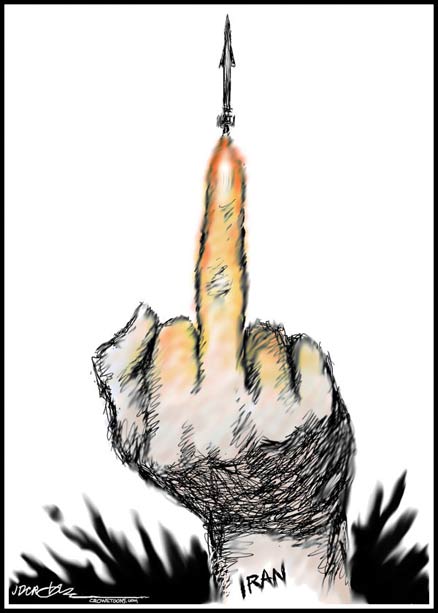
Throughout the debate over the Iran nuclear deal, critics of the agreement did more than point out its weaknesses. They also argued that given Iran's long record of violating existing agreements, it was almost certain that Tehran would ignore many, if not most of its restrictions at the first opportunity.
This claim was pooh-poohed by President Obama and his supporters who asserted that the safeguards in the pact would prevent cheating.
More importantly, the mindset behind the decision to essentially grant international approval to Iran's nuclear program was based on the notion that the Islamist regime could be trusted and would, given enough encouragement, ultimately change to become a partner for the West.
The jaw-dropping naïveté that was the foundation of administration policy is part of what led to what polls showed to be most of the American people and large majorities in both the House and the Senate to oppose the deal (though not enough, thanks to partisan Democrats, to stop it).
But critics didn't have to wait long for their predictions to start coming true.
As the New York Times reported, Iran announced a long-range missile test in violation of the restrictions on their missile program that was promised by the administration.
One of the many shortcomings of the nuclear deal was its failure to address Iran's building of intercontinental ballistic missiles, a weapons system that illustrated that their nuclear program was a threat to the United States as much as it was to Israel. But the deal did leave in place the restrictions on missile testing.
Indeed, the United Nations Security Council resolution that lifted most of the sanctions on Iran (prior to Obama sneaking the deal through Congress) left in place previous the measures previously passed that made missile tests illegal. Thus, the announcement by Iran's state news agency that the test of their Emad guided missile is an obvious violation of the deal.
Yet what is most significant about this event is that it allows us to see exactly how the nuclear deal will function in the future.
Given the ferocity of administration promises about safeguards and holding Iran accountability that we heard during the debate on the deal, we might expect serious consequences to result from the missile launch. But anyone who really thinks that will happen hasn't been paying attention.
What's next?
The administration will express concern but also attempt to muddy the waters about the agreement saying, as the Times article implied that there was some doubt about whether the restrictions still apply.
The missile test will be widely interpreted as being merely a function of internal Iranian political arguments between hardliners opposed to the deal and "moderates" in favor of it. The test will be dismissed as meaningless and any attempt to hold Iran accountable for its misbehavior will be branded as a Western provocation that would destroy trust inside Iran and hurt the "moderates."
In other words, we will be told to move along and there is nothing to see here.
But there is something very important going on.
The Emad is a clear technological step up from Iran's existing Shahab-3 missile and is a direct threat to Israel. While Iran speaks of its armaments as defensive in nature and a deterrent against the Jewish state, we should remember one thing. Israel has no policy aimed at destroying Iran. It is Iran's leaders who repeatedly threaten Israel with extinction.
The process, by which Iran will move, either slowly or quickly to a nuclear weapon with a weapons system that can deliver such a bomb, begins with establishing its ability to violate the nuclear deal with impunity. Once smaller violations are allowed to pass without consequences, we have taken a first irrevocable step down the road to the acceptance of an Iranian bomb that is implicit in the adoption of the nuclear deal. If those who supported the deal do not respond with vehement denunciations and pressure, but instead use the same weak arguments to justify the violations that they used to support the agreement, then the Islamist regime will know that other violations will be treated in the same fashion.
Of course, Iran also knows that it can get to a bomb rather easily once the deal expires in a decade since its nuclear infrastructure and advanced research has been left in place. But if cheating along the edges of the deal is okay with the Obama administration, then there's no reason for them to wait or to at least to start the kind of development that will make a bomb and a capable delivery system inevitable. That means that rather than being a minor violation that doesn't affect the main thrust of the deal, the missile test is a benchmark by which everything that follows will be judged.
In that sense it is not so much the Iranian missiles that are being tested as the Obama administration and its liberal cheering section in the media. Given their track record, there's not much doubt that they will fail.
Comment by clicking here.
JWR contributor Jonathan S. Tobin is executive editor of Commentary magazine, in whose blog "Contentions" this first appeared.



 Contact The Editor
Contact The Editor
 Articles By This Author
Articles By This Author